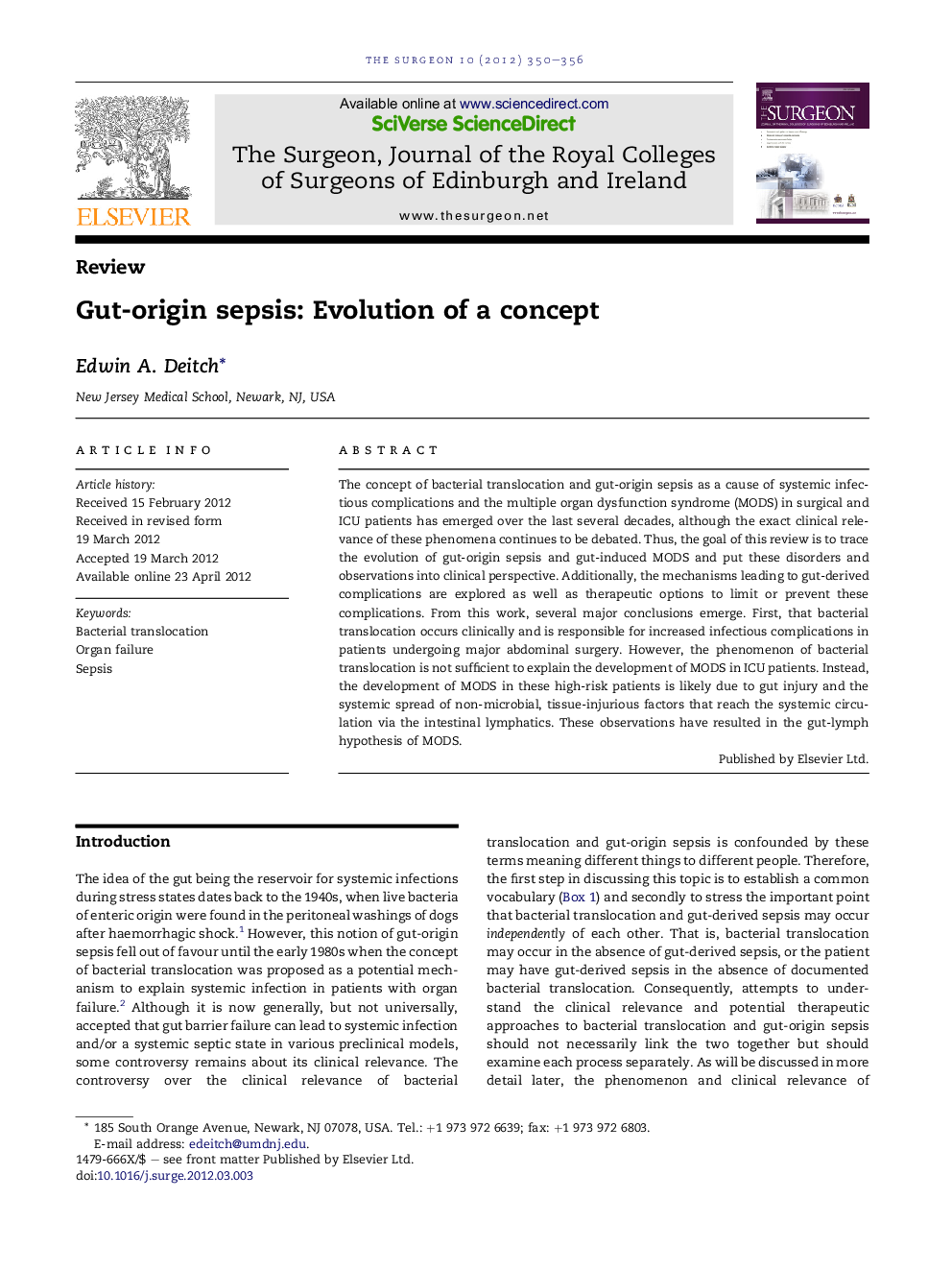| Article ID | Journal | Published Year | Pages | File Type |
|---|---|---|---|---|
| 3178557 | The Surgeon | 2012 | 7 Pages |
The concept of bacterial translocation and gut-origin sepsis as a cause of systemic infectious complications and the multiple organ dysfunction syndrome (MODS) in surgical and ICU patients has emerged over the last several decades, although the exact clinical relevance of these phenomena continues to be debated. Thus, the goal of this review is to trace the evolution of gut-origin sepsis and gut-induced MODS and put these disorders and observations into clinical perspective. Additionally, the mechanisms leading to gut-derived complications are explored as well as therapeutic options to limit or prevent these complications. From this work, several major conclusions emerge. First, that bacterial translocation occurs clinically and is responsible for increased infectious complications in patients undergoing major abdominal surgery. However, the phenomenon of bacterial translocation is not sufficient to explain the development of MODS in ICU patients. Instead, the development of MODS in these high-risk patients is likely due to gut injury and the systemic spread of non-microbial, tissue-injurious factors that reach the systemic circulation via the intestinal lymphatics. These observations have resulted in the gut-lymph hypothesis of MODS.
